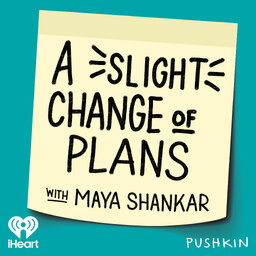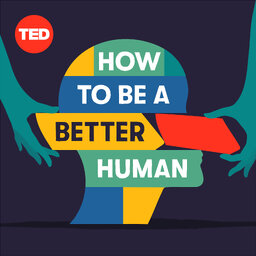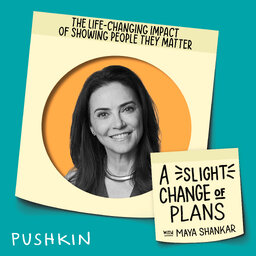A Different Kind of Identity Theft
When world-renowned musician Min Kym first picked up a violin, she knew immediately that it would define her. And it did…until one day, in a London train station, everything changed.
For a behind-the-scenes look at the show, follow @DrMayaShankar on Instagram.
In 1 playlist(s)
A Slight Change of Plans
What happens when life doesn’t go according to plan? In this award-winning podcast, cognitive scient…Social links
Follow podcast
Recent clips

The Invisible Weight of Olympic Gold
34:12

How to Accept the Messiness of Love
40:42

The Life-Changing Impact Of Showing People They Matter
39:33
 A Slight Change of Plans
A Slight Change of Plans